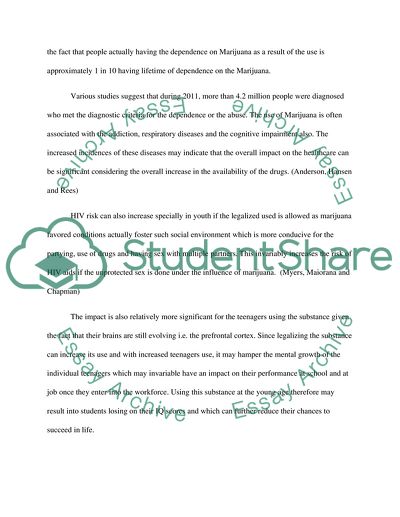Cite this document
(Legalization of Marijuana Research Paper Example | Topics and Well Written Essays - 1500 words, n.d.)
Legalization of Marijuana Research Paper Example | Topics and Well Written Essays - 1500 words. Retrieved from https://studentshare.org/social-science/1826788-marijuana
Legalization of Marijuana Research Paper Example | Topics and Well Written Essays - 1500 words. Retrieved from https://studentshare.org/social-science/1826788-marijuana
(Legalization of Marijuana Research Paper Example | Topics and Well Written Essays - 1500 Words)
Legalization of Marijuana Research Paper Example | Topics and Well Written Essays - 1500 Words. https://studentshare.org/social-science/1826788-marijuana.
Legalization of Marijuana Research Paper Example | Topics and Well Written Essays - 1500 Words. https://studentshare.org/social-science/1826788-marijuana.
“Legalization of Marijuana Research Paper Example | Topics and Well Written Essays - 1500 Words”, n.d. https://studentshare.org/social-science/1826788-marijuana.


